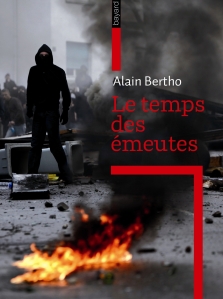Emeute en Chine : une analyse chinoise
Riots ‘won’t lead to rebellion’
Feb 12, 2009
By Tracy Quek, China Correspondent
BEIJING – THE number of protests and riots in China is rising by the year, but there is little possibility that social unrest will result in an anti-government uprising, a Chinese academic said yesterday.
Mass incidents – the Chinese government’s term for riots, demonstrations and protests – should not be mistaken for attempts to ‘rebel against or overthrow the government’, said Dr Wang Erping of the Chinese Academy of Sciences’ Institute of Psychology.
Rather, these are instances of ‘ordinary Chinese people wanting to put pressure on local governments to solve problems or improve situations’, he said in a discussion with journalists. He had been asked if recent and increasingly common reports of unrest were signs that Beijing could soon have a ‘revolution’ on its hands.
Using an analogy, Dr Wang, who has studied mass incidents from a psychological perspective, said current cases of unrest for the Chinese government ‘are like ringworm infections: They make you feel uncomfortable, but they are not fatal’.
In fact, he said his research revealed that protesting or rioting was the last recourse for most Chinese. His team’s survey of almost 10,000 ordinary Chinese carried out between 2004 and last year showed that if faced with grievances, a majority said they preferred to settle the matter privately or through legal and ‘proper’ channels, rather than resort to violent means.
The survey was carried out in 193 counties across five provinces located in China‘s western and central regions.
Even as China‘s top leaders grapple with a withering economy this year after three decades of red-hot growth, a bigger challenge will be to maintain social stability amid rising tensions exacerbated by the economic crisis and huge job losses.
Social unrest goes against President Hu Jintao’s political mantra of a ‘harmonious society’ and is seen by the ruling Chinese Communist Party as the biggest challenge to its rule.
China‘s Public Security Ministry reported 87,000 mass incidents in 2005, up 6.6 per cent over the number in 2004, and 50 per cent over the 2003 figure. The ministry has not released the latest figures.
According to Dr Wang’s presentation yesterday, which he said was based on official statistics, there were at least 10,000 mass incidents recorded in 1993. The number ballooned to more than 60,000 in 2005. Two years later, it exceeded 80,000.
Asked if he had an estimate for the number of mass incidents last year, Dr Wang said a study had been done, but he would say only that the number was ‘higher than that in 2007, but the increase was not as big as the rise between 2005 and 2007’.
He added that scholars researching the phenomenon have advised China‘s leaders since 2005 to ‘listen more to the voices and complaints of the ordinary people’ in order to minimise unrest.










